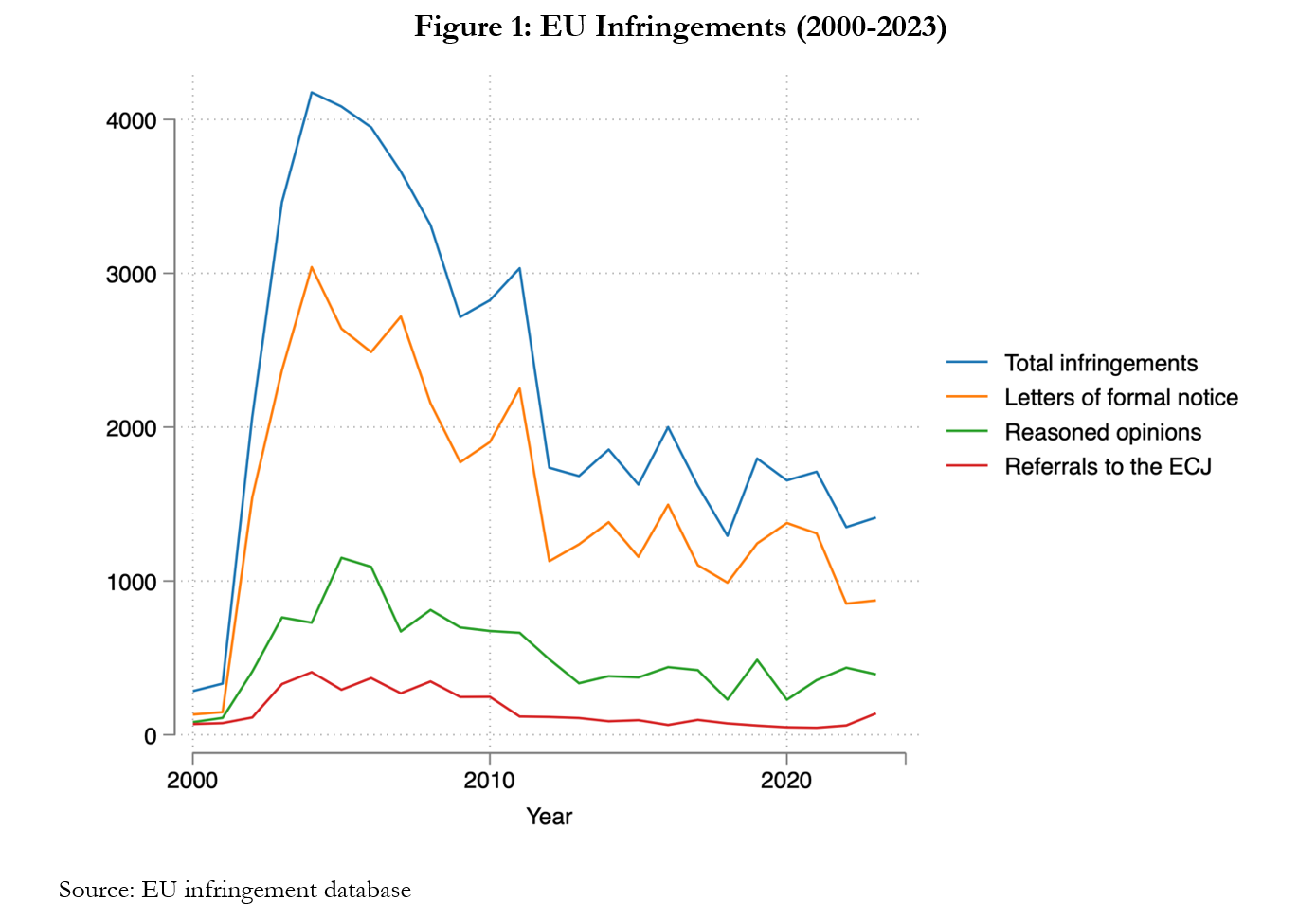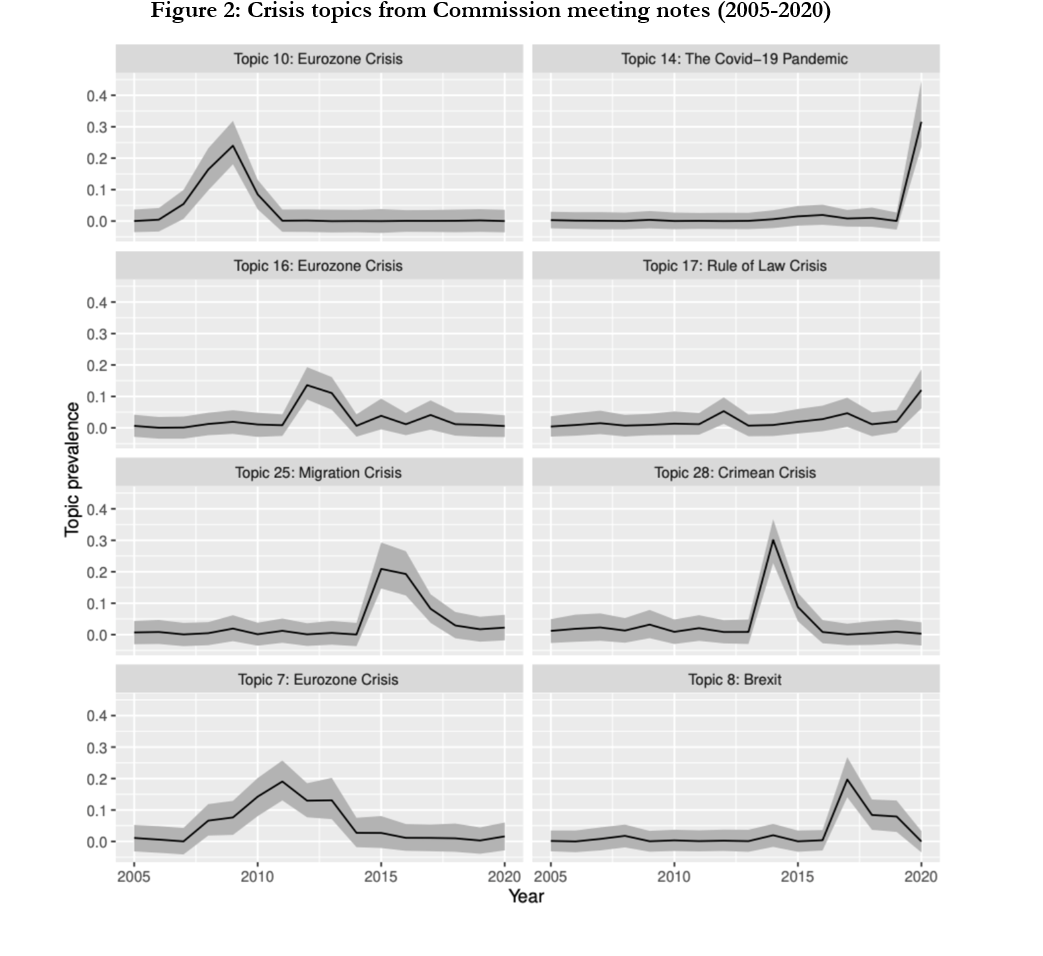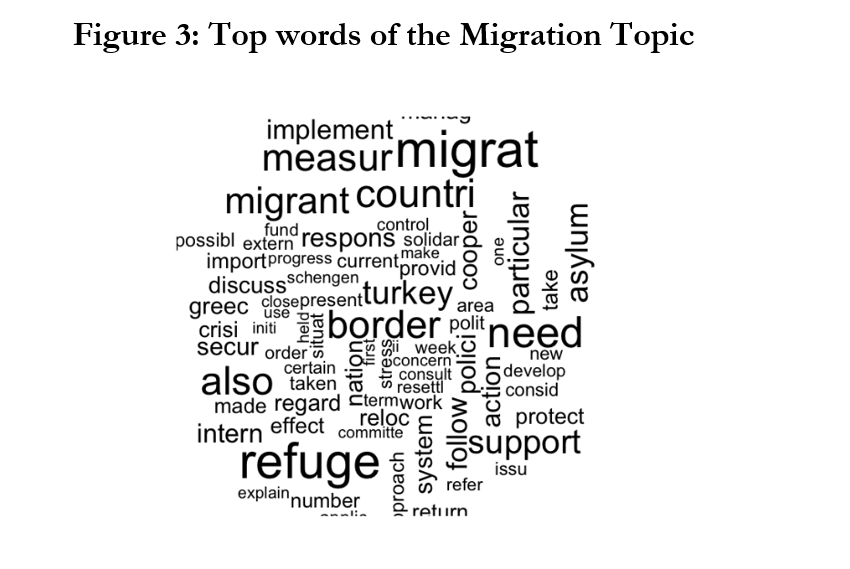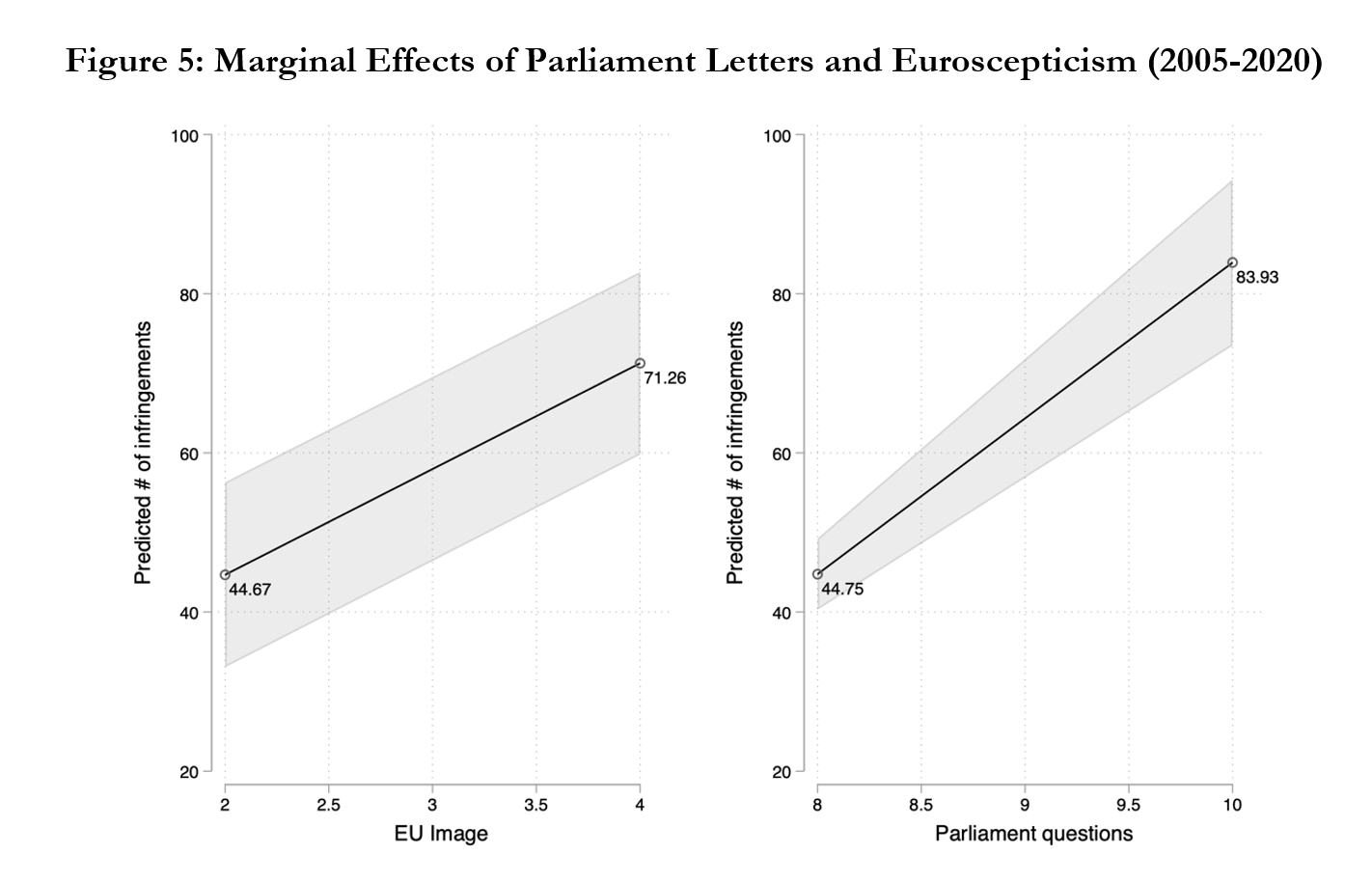In 2018, EU Commission president Jean-Claude Juncker stated that the EU “had been sleepwalking from one crisis to another without waking up.” These crises have no doubt had a range of detrimental effects on the EU, and I argue that crises make it harder for the Commission to enforce EU law. Why? Crises require resources, including time. Time is a fixed and finite resource, and if the Commission is spending time on a crisis, there is less time for enforcement. However, crises do not inevitably lead to lax enforcement. Other actors, including the European Parliament and EU citizens can help overcome the constraints of time.
As shown in Figure 1 below, there has been a dramatic decline of infringement procedures (the main formal enforcement mechanism used by the EU Commission) since 2005. Even though ten countries joined the EU in 2004, the number of infringements did not increase, instead they shrank. These declines are especially puzzling when we consider the democratic backsliding that has occurred since 2010 in the EU. Hungary is now classified by Freedom House (2024) as “Partly Free,” and by V-Dem (2024) as an “electoral democracy” (one step down from the most democratic classification of “liberal democracy”). Poland barely scraped by with the lowest possible score to keep their “Free” rating from Freedom House (2024), but even countries like Greece are seeing democracy scores drop. What can explain this seemingly incongruous lack of EU response?

Measuring Time
One known explanation for institutional (in)action is resource availability. Institutions need money and staff, both of which are fairly easy to measure, but they also need time. Accurately measuring how much time an institution has, however, is not as straightforward.
In my 2024 paper, “The EU Commission: Supplying enforcement and demanding compliance,” (published in the European Union Politics journal), I use topic models derived from publicly available Commission meeting notes to measure changes in Commission time (money and staff levels do not change much). I leverage the fact that the EU has faced several crises since 2005, and crises take up the technocratic Commission’s time. When the Commission is dealing with a crisis, there is less time for their other functions, like enforcing EU law.
 The topic models in Figure 2 show the 6 different crises found in Commission meeting notes from 2005-2020: the Covid-19 pandemic, the Eurozone crisis (covered by 3 topics), Brexit, the Syrian Migration crisis, the Crimean crisis (when Russia invaded Ukraine the first time), and the rule of law crisis. The plots show the proportion of Commission meetings that were spent discussing the crisis over time. For example, time spent on the Brexit was zero until it spikes in 2016, when Great Britain voted to leave the EU.
The topic models in Figure 2 show the 6 different crises found in Commission meeting notes from 2005-2020: the Covid-19 pandemic, the Eurozone crisis (covered by 3 topics), Brexit, the Syrian Migration crisis, the Crimean crisis (when Russia invaded Ukraine the first time), and the rule of law crisis. The plots show the proportion of Commission meetings that were spent discussing the crisis over time. For example, time spent on the Brexit was zero until it spikes in 2016, when Great Britain voted to leave the EU.
Figure 3 provides an example of what topic words looks like, in this case, for the migration crisis topic. The bigger words are used more frequently–meeting notes during the migration crisis include words like migrant, border, Turkey, Greece, and asylum.

How do crises affect enforcement? Figure 4 shows the association between crises and the number infringements started by the Commission. For each crisis, the number of infringements declines as the proportion of meeting notes covering the crisis increases. For example, the predicted number of infringements goes from about 63 per country-year before the migration crisis, to 35 at the peak of the crisis, a change of almost 30 infringements per country-year.

Crises & Enforcement
Why does this matter? The EU has been through a seemingly endless series of crises since 2005. Currently, the EU is dealing with Russia’s invasion of Ukraine, and the rise of populist far-right leaders who are undermining democracy. Summer is finally here, and because of climate change, the continent is facing higher temperatures and their associated public health consequences. There are questions about the EU’s relationship with China, and even the United States, with a polarizing presidential election looming. And evidence suggests that crises make it harder for the Commission to enforce EU law.
However, the effect of crises on infringements is not inevitable. The actions of other political actors can impact enforcement too. I found that when there are more written letters from the European Parliament to the Commission, there are also more infringements, shown in the right-hand panel of Figure 5. Infringement counts also vary with Euroscepticism. The left-hand panel of Figure 5 uses a question from the Eurobarometer about how citizens see the EU, whether they have a positive or negative image of the institution. Higher numbers here reflect higher levels of EU support. When support for the EU is at its highest, there is an expected increase of more than 25 infringements per country-year, compared to lower levels of EU support.

What does this mean for the EU? First of all, crises appear to limit the Commission’s ability to act as the mandated “guardian of the Treaties.” Compliance with EU law is necessary for the future stability of the institution; crises therefore have the potential to undermine the EU through member state noncompliance. However, even without formal enforcement power, there is evidence that EP action helps shape Commission enforcement, as does the support of EU citizens. On the one hand, this illustrates the importance of institutional structure, but it also suggests that structure alone cannot fully explain Commission enforcement decisions. The political will to enforce EU law is also determined by the choices of other actors, specifically the EP, and EU citizens. They may be able help the Commission overcome the constraints of crises and time. Future research should delve deeper into the link between inter-institutional pressure and enforcement. One possible avenue may be an exploration on how other formal or informal actors can close the enforcement gap, even without having the official mandate as “guardian of the Treaties.”
Kari Waters is a PhD candidate in the Political Science Department of Syracuse University and a graduate research associate at the Center for European Studies at the same university.
- Do crises affect enforcement of EU Law? - June 30, 2024
